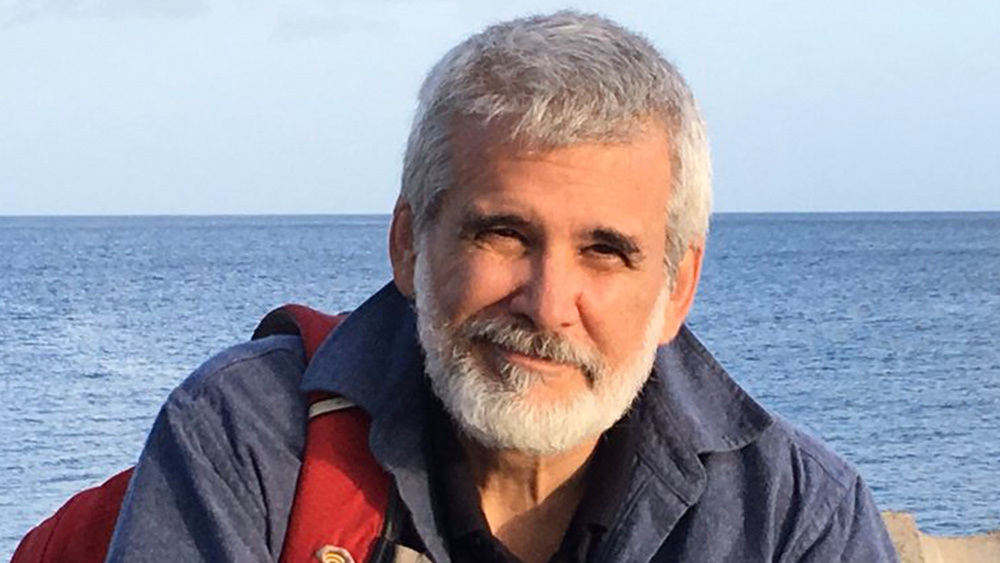Food shortage around the world may have been engineered to control populations
11/18/2021 / By Arsenio Toledo

The supply chain crisis, which is causing retailers to run out of food to sell, may have been engineered to make people submit to tyrannical government directives.
S.M. Smyth, writing for Global Research, points to historical examples of people using deliberate food shortages and engineered famines to control populations.
This includes pioneers in the old Wild West taking control of salmon populations to defend themselves against American Indians, and the Canadian government’s former policy of controlling buffalo populations to starve out First Nations tribes across the Canadian Prairies.
Such attack, Smyth wrote, will greatly affect people in America and the rest of the Western world, who probably have never experienced food shortages of this scale in their lives before.
“Made weak from the lack of adequate nourishment, or outright starving, a people can be easily managed,” wrote Smyth. “Desperation will bring them to heel, famine will seal their fate.”
“It would seem that the masters of manipulation, at this stage of their bold experiment, not satisfied with poisoning us with toxins in the air, water and food – to say nothing of pills and injections – now want to choke off our rations,” he continued. (Related: Food pantries strongly affected by supply chain crisis, unable to provide food to thousands of people.)
“It is hard for the average denizen of our great cities and comfortable suburbs to imagine, in spite of now visible shortages, that the day may come when the groaning supermarket shelves are well nigh empty, save for state-approved lab-grown delicacies.”
Smyth argued that governments may even begin restricting who gets to eat using tracking mechanisms that monitor a person’s purchasing and social media habits, or even their Wuhan coronavirus (COVID-19) vaccination status.
“One wonders how the average urbanite will fare, when faced with the prospect of dwindling supplies of food, and perhaps even water, fuel and power,” he concluded.
Armed Forces members struggling with food insecurity
Some of the first Americans being targeted by the engineered food shortages are active-duty members of the armed forces.
According to Feeding America, an organization that partners with and coordinates the work of more than 200 food banks around the country, as many as 160,000 active-duty members of the U.S. Armed Forces are having trouble feeding their families.
Activists point out that Feeding America’s statistics may be underestimating the scope of the food insecurity problem that members of the military, primarily low-ranking officers with spouses and children, have been experiencing this problem for years now.
“It’s a shocking truth that’s known to many food banks across the United States,” said Feeding America Government Relations Officer Vince Hall. “This should be a cause of deep embarrassment.”
Feeding America’s estimates suggest that at least 29 percent of troops in the most junior enlisted ranks experienced food insecurity during the past year alone.
“It is what it is,” said James Bohannon, 34, of San Diego. Bohannon is a petty officer third class with the Navy and he relies on food assistance to help feed his two daughters.
“You know what you’re signing up for in the military,” he said. “But I’m not going to lie. It’s really tough.”
Meredith Knopp, an Army veteran and CEO of a food bank in St. Louis, said the food insecurity problem is present in all branches of the military. She recalls an experience when she was a young officer and she was approached by a new private with a baby.
“They were getting ready to turn off his electricity because he couldn’t pay his bills,” said Knopp. “It was shocking to me.”
To help active-duty servicemen and women, a nationwide network of charitable organizations like the Armed Services YMCA and Blue Star Families has developed a lot of charitable infrastructure near most of the country’s major bases. These food banks help alleviate food insecurity issues for thousands of people.
Josh Protas, vice president of public policy for Mazon, an organization that has conducted a lot of research on food insecurity in the military, points out that this situation directly threatens national security.
Active-duty servicemen and women who are dealing with food insecurity issues at home are less likely to re-enlist and instead find more lucrative work in the private sector. This may also cause entire families with long histories of service in the armed forces to leave for good.
“We’re doing a disservice to future recruitment efforts,” said Protas. “We could be losing good people because they can’t support their families.”
Protas pointed out that the situation is made worse by the fact that the Department of Defense is actively ignoring the problem. “The denial by the Pentagon has been frustrating,” he said. “It’s embarrassing for our leaders to acknowledge the problem.”
Learn more about the engineered food shortage and how this has impacted the lives of millions of Americans by reading the latest articles at Starvation.news.
Sources include:
Tagged Under: big government, conspiracy, crisis, economy, engineered, enslaved, food insecurity, food shortage, food supply, military, national security, starvation, supply chain, Tyranny
RECENT NEWS & ARTICLES
COPYRIGHT © 2017 PENSIONS NEWS




















